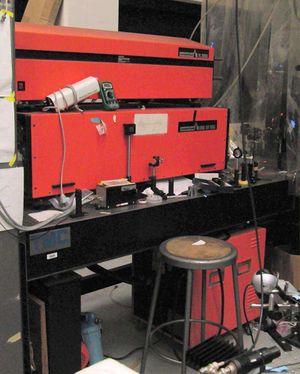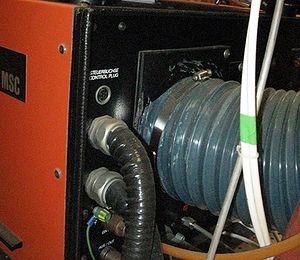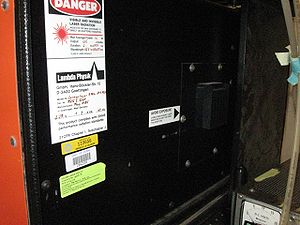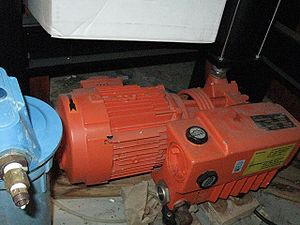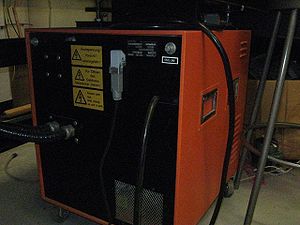Diamond Radiator Thinning Using an Excimer Laser
Laser Thinning of Diamond
Laser ablation will be used to thin the diamond chip to the precise thickness required for the radiator. An older excimer laser offered by a local AMO group will be converted from a XeCl 308 nm beam to the required ArF 193 nm beam. Although the system was last used 10 years ago, it was left in a fully functioning state and was properly flushed upon decomposition. There may also be another unused excimer laser that can be used for parts in case any repair is needed.
Work Schedule
The following is a list of tasks required to get the Ar-F excimer laser online.
- First, take the proper safety course required by the University of Connecticut Environmental Health and Safety department.
- Prepare Dr. Well's laboratory for the transfer of the Excimer laser including setup of ventilation, three-phase (208V) power supply, cold water distribution and collection, and a sturdy table to put the laser on.
- Replacement of Halogen Filters
- Tend to the vacuum system: replace oil in diffusion pump, test for serious leaks at moderately low pressure (10−6 Torr)
- Test the RF generator (most expensive/hard to replace!)
- Procure a bottle of pure Ar gas
- Check internal circulating fan bearings, as these are a possibly source of corrosion
- Flush the tube, turn it on and test output power
- Barring major repair: expected online by end of 2009 with $2-3k
Long-term operating goals:
- Switch optics to 192nm
- Get mixture of Ar-F, eventually procure a gas mixing system)
- Ensure reliable pulse train and consistent power output (±5%)
Updates
- Original documentation of the Lambda Physik EMG 101 MSC Excimer laser has been scanned and posted on the following page,
- Preparation for moving the Excimer laser has begun.
- Initial diagnostics on the laser's state have also begun, however the real testing begins once we are able to take the laser head cover off.
